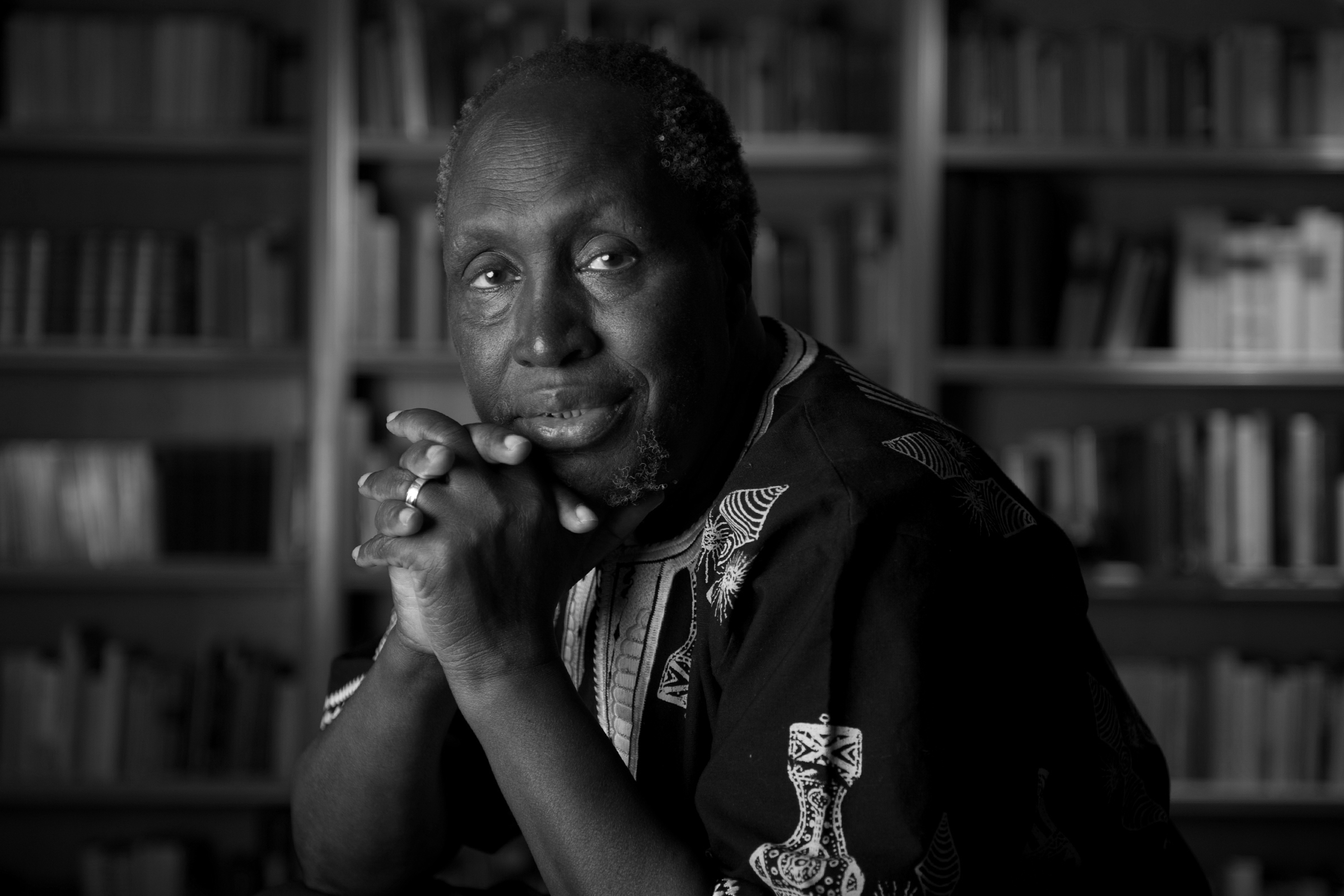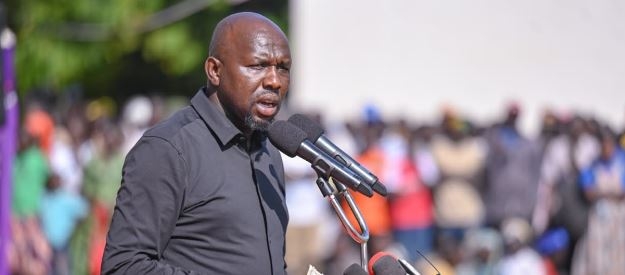

When I trace the roots of my intellectual awakening, I see the
faces of two men: my father, Clement Fwamba and my elder brother, Nicodemus
Fwamba.
They introduced me not just to general knowledge, but to a
world of ideas, resistance, and radical imagination.
In 1988, my brother joined Cheptais High School. I was in
Class Two. Around that time, I began leafing through The Standard and other
Dailies, which my father bought faithfully.
But it was the
magazines that truly captivated me-their bold cover designs, striking layouts,
and sharp political commentary: Weekly Review by Hilary Ng’weno, The Society by
Bedan Mbugua, Nairobi Law Monthly by Gitobu Imanyara, and Finance by Njehu
Gatabaki.
During school holidays, my brother would walk me through
them patiently, story by story, idea by idea.
But the interest of seeking knowledge didn’t stop with the
newspapers and political magazines.
He began mentioning books he encountered in high school, and
one name towered above the rest: Ngũgĩ wa Thiong’o.
I hadn’t yet read Detained, The River Between, A Grain of
Wheat, or I Will Marry When I Want, but the reverence in my brother’s voice made
Ngũgĩ seem mythical.
He told me how Ngũgĩ defied the Moi government, something
very few would dare then and before that, the iron fist of the Kenyatta regime.
How he discarded his colonial name “James” and declared war
on mental bondage.
How he was detained for his writing and later forced into
exile.
Even before I read a single word of his, Ngũgĩ’s image was
etched into my mind as an unbowed intellectual giant.
Eventually, I read him—and read him deeply.
Alongside Wole Soyinka, Francis Imbuga, Chinua Achebe,
Elechi Amadi and other African giants of literature, Ngũgĩ became part of my
literary canon.
Through him, I learned that the written word could be
sharper than a sword, that storytelling could be rebellion.
Ngũgĩ, my brother told me, had a stammer.
But when he wrote, his thoughts roared. His prose shook
systems. He didn’t just critique power—he dismantled it sentence by sentence.
Even in childhood, I began to understand what democratization
really meant.
What it meant to demand “expanded democratic space.”
Ngũgĩ radicalized my young mind—he made it impossible to see silence as neutral, or oppression as normal.
And then came the stories of student leaders—those who dared
to challenge state power within the university gates.
One name that haunted me early was Tito Adungosi—the SONU
chairman of 1982. Brilliant. Courageous. Arrested by the then-regime. Left to
die in prison under suspicious circumstances.
Another was Wafula Buke, whose story gripped my imagination
even more. Buke, also a SONU chairman, was expelled and jailed at Naivasha and
Kamiti Maximum Security Prisons for
alleged ties with the Libyan Embassy, deemed by the state as subversive.
But to us, Buke was a symbol of fearless conviction. Buke’s
courage, especially, lit a fire in me. I carried his name with reverence.
If I ever made it to
the University of Nairobi, I told myself, I would join that unbroken chain of
resistance—of youth standing tall against injustice.
For many of us, university wasn’t just a place of learning.
It was where ideas collided with action. I became fixated on
joining UoN because it had birthed the stories my brother had fed me—stories of
Adungosi, Buke, Ngũgĩ wa Thiong’o, Willy Mutunga, Ali Mazrui, Mukaru Ng’ang’a,
Katama Mkangi.
These weren’t just names—they were monuments of defiance.
Then came 2003.
With Mwai Kibaki’s election, a new dawn broke.
One of his first acts was lifting the cloud over exiles.
Ngũgĩ was invited home. From that year, political exiles
would walk again on Kenyan soil. T
hat same year, the ceremonial chancellorship of public
universities—once a preserve of the president who was Chancellor of all public
universities—was abandoned.
Kibaki appointed Dr. Joe Barrage Wanjui as Chancellor of the
University of Nairobi, distancing academia from direct state control.
It was a powerful symbol: at last, our universities could
begin to breathe again.
As students, we rose.
We demanded the lifting of the SONU ban. We called for the
reinstatement of comrades expelled or suspended during the KANU years. We
wanted our voice back.
And on March 7, 2003, I was elected Vice Chairman of SONU.
It wasn’t just a student election—it was a historical relay.
A generational response.
In many ways, I was carrying the spirit of Wafula Buke into
the office—proof that the fire lit by student activism would not be extinguished
by time, fear, or repression.
Then came the moment that stuck in my memory for eternity.
In November 2004, Ngũgĩ wa Thiong’o returned.
After over two decades in exile, after teaching at Yale,
NYU, and UC Irvine, Ngũgĩ came back—not just to Kenya, but to the University of
Nairobi—his last place of work before detention and exile. It wasn’t just
symbolic. It was spiritual.
We, the students, received him. It was on the 19th of
November 2004.
I will never forget the energy in Taifa Hall. The air was
electric. His wife, Njeeri, stepped out beside him.
Chants erupted: “Ngũgĩ for Chancellor! Ngũgĩ for
Chancellor!”
As a student leader, I sat on the committee that organised
Prof Ngũgĩ’s welcome at the University of Nairobi.
This gave me an opportunity not only to be part of the team
that welcomed him but was among those who first shook his hand alongside
Chancellor, then the late Dr JB Wanjui, Vice Chancellor Prof. Crispus Kiamba, Dr
Eddah Gachukia, the late Dr. Arthur Kemoli, the late Ken Walibora, Fr.
Wamugunda Wakimani and other student leaders then including the late Oulu GPO.
When I shook his hand—the hand of the man who had
radicalised my mind before I even fully understood the word “radical”—I felt a
great sense of honour and pride.
He spoke slowly. Thoughtfully. Each word hit like a
drumbeat.
Then came his public lecture: “Remembering Africa.”
It was not merely a lecture—it was an awakening.
Ngũgĩ, dressed in a simple shirt with striking African attire,
chose to give his lecture while sitting next to his wife Njeeri, whose back he
kept tapping gently as he spoke in a slow manner, not really stammering to the
extent I had expected.
Knowing the background of the man we were welcoming, I also
put on African wear that day. This was before a packed Taifa Hall that trembled
not from noise, but from expectation.
He began not with fanfare but with a story—how the colonial
classroom, church, and prison had worked in unison to separate Africans from
their languages, cultures, and consciousness.
He narrated history, linguistics, and contexts of how Africa
had been interrupted, dispossessed, and misnamed—but never destroyed.
He said Africa had been dismembered, and that is why there
was a need to remember Africa.
He spoke of the African renaissance not as nostalgia, but as
necessity. That true liberation could never be achieved without the reclamation
of language.
That to “remember Africa” was not simply to recall it, but to
re-member it: to piece it back together, spiritually, intellectually,
politically.
He challenged us—students, professors, politicians—to stop
treating English, French, and Portuguese as markers of modernity, and instead
turn to our indigenous languages as vessels of dignity, resistance, and
healing.
When he spoke about the violence of dismemberment—from the
Berlin Conference to the classroom to the publishing house, many in the
audience were emotionally moved.
It wasn’t sadness.
It was the recognition of truth long buried. It was not only
about that truth, but also about the stature of the person who was telling the
story and how he was telling it.
Then came the call: “We must remember Africa to remember
ourselves.”
By the time he finished, no one clapped immediately. There
was a sacred pause, as if we had just come from a baptism of the mind. We left
that hall changed and that's why the lecture is etched in my memory for
eternity.
It wasn’t just a talk. It was a sermon. A revolutionary
prayer. In that moment, Kenya reconnected with a severed part of its soul.
We celebrated Ngũgĩ not merely as a novelist, but as a
prophet.
A truth-teller. A
master teacher of courage and consciousness. His return from exile at that
time was our reawakening as a young generation that
aspired to give Kenya good leadership that was rooted in accountability and
respect for our heritage as Africans, respect for human rights and respect for
the rule of law and good governance.
That year, Kenya’s universities reclaimed their historic
role—not just as places of learning, but as engines of liberation.
And now, as we mourn Prof. Ngũgĩ wa Thiong’o, we do so with
full hearts. Grief, yes—but more so, gratitude.
Kenya has lost a literary lion. Africa, a fierce thinker. The
world, a revolutionary voice.
But Ngũgĩ’s legacy will never die.
Through his unwavering insistence on writing in Gikuyu, his
rejection of colonial psychology, and his fierce critique of imperialism, he
taught us that language is resistance, and storytelling is political.
He taught us to remember who we are. And to fight for who we
must become.
Rest in power, Prof. Ngũgĩ wa Thiong’o.
You decolonised our minds. You armed us with words. You taught
us to dream in our own languages. You are home now.
And we—your students, your readers, and those who believed
in your revolutionary ideological points of view—will carry the flame forward.
Fwamba NC Fwamba is
the Chairman of the National Alternative Leadership Forum













![[PHOTOS] Family, friends receive body of Raila’s sister, Beryl](/_next/image?url=https%3A%2F%2Fcdn.radioafrica.digital%2Fimage%2F2025%2F11%2Fdfe6a9bf-ede1-47a4-bdc0-4f564edb03dd.jpeg&w=3840&q=100)


